What would you do if your family situation was abusive? As an 11-year-old living in Vietnam, Don Skanchy made the decision to run away. He had no idea that that single decision would lead him a half a world away and back or if he would ever see his family again.
Born in 1953 in a small village in North Vietnam to Duong Van Khoat and Nguyen Thi Nhat, Don Skanchy’s childhood seemed anything but loving. Don, the oldest child in his family, grew up poor, living with a grandmother, his father, mother, and six children.
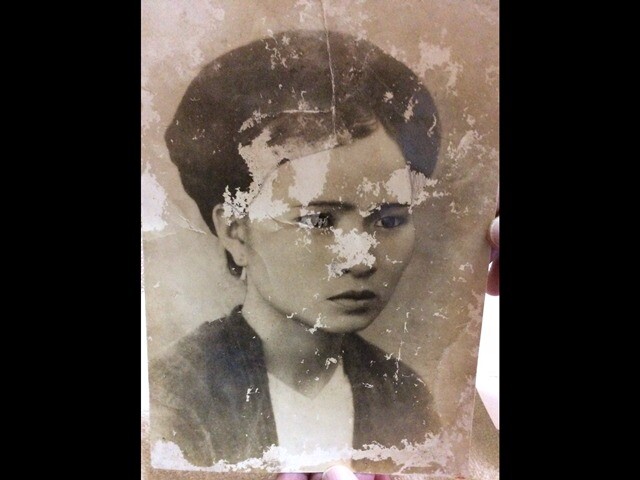
His grandmother he describes as unkind (following Vietnamese tradition, she lived with her oldest son’s family as the ruling authority and was given the first and best of everything) and his father would frequently become violent when drinking. It was this abusiveness that eventually led Don to leave home. He remembers the “straw that broke the camel’s back” was when his sister asked who in the family Don loved the most. Trying to please his father, he said he loved his father best. His father’s response, however, was four powerful slaps across Don’s face and a harsh command for his son to always love his grandmother the best. Don recalls, “I had been beaten many times in the past and some of the beatings were quite severe, to the point that I could not get out of bed for many days. However, this event was different. It lingered in my mind longer than it should and it caused me to think of many things, such as family and love or lack of it. A few days later it was early in the morning when I was woken up by a voice in my head and in my heart telling me, ‘It’s time to go.’”
And go was exactly what he did. The 11-year-old walked to town, caught a bus, and ended up in Saigon. There he lived on the streets for several months, begging for his food, trying to ward off the cold and rain, and sometimes waking up to rats chewing on his fingers, toes, or ears. Eventually, he was caught by a policeman, and after spending a few days in jail while authorities waited for someone to claim him, he was sent to a boys’ orphanage, where he lived from 1964 to 1968.
A Miracle Adoption
It was while in the orphanage that Don met his future father, Robert K. Skanchy. It was the greatest dream of the Vietnamese orphans to be adopted by an American family, and Skanchy was an American serviceman working for the CIA during the Vietnam War. Skanchy, a Latter-day Saint and a bachelor at the time, had decided to adopt a couple of Vietnamese children and visited the orphanage where Don was living. Skanchy was immediately drawn to the boy and asked Don through an interpreter to come and speak with him. Don, who was reluctant to leave a game that he had finally been invited to play, was told through an interpreter that Skanchy wanted to adopt him. “I was somewhat surprised and said ‘yes.’ I didn’t understand much at that point nor the importance of the event. I was more interested in getting the meeting over with so I could go back to my game.”
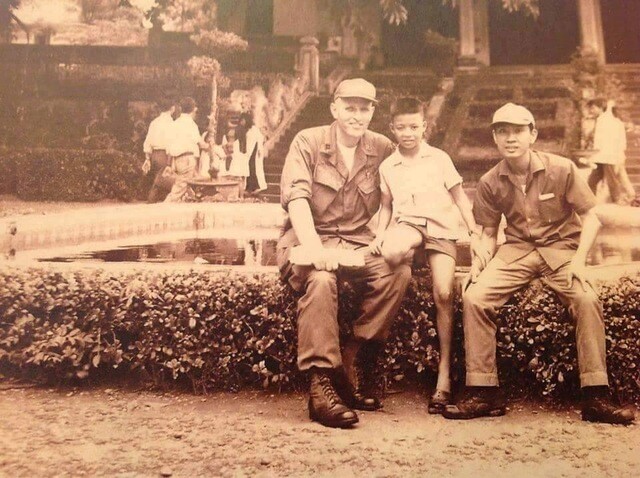
Don didn’t see his new father for three months after that. But Don recalls when he did return. “It was a confusing and exciting feeling. Me, adopted! When did that happen and why didn’t I remember it? As I approached this wonderful man, he gathered me into his arms and hugged me.” The teen’s fears were put at ease when he saw Skanchy’s gifts, including Don’s first bag of peanut M&Ms. From then on, Skanchy visited a few times a week, giving Don a small allowance and taking him out to eat. It was during this time that Don discovered he had a new sister—a little girl Robert had also adopted named Nancy. Robert began taking the children to Church at a branch in Saigon. Don remembers “It was very interesting because all the hymns were in English, so we couldn’t understand . . . we had a Vietnamese Sunday School teacher, but we were pretty young so we didn’t understand very much.”
Becoming Part of a Latter-day Saint American Family
Robert brought Don and Nancy back to the United States on February 28, 1968. A few months later, Robert married Ann Mobley, who gave up her career as a senior lawyer at NBC Corporation to become a full-time mom and wife, in the Logan Utah Temple. There were lots of adjustments the children had to make and things they had to learn, from how to speak English to how the refrigerator worked. But there were emotional adjustments to be made as well.
The day Don and Nancy were sealed to their new parents in the temple was a memorable one for Don. The children’s past experiences with a lack of love, combined with confusion caused by an ongoing language barrier, led the children to worry that they were unloved once again and were being abandoned in a new place. But despite those initial uncertainties, Don remembers the powerful moment when they were led into the sealing room.
“We went upstairs and saw our mom and dad kneeling at the altar and aunts and uncles and cousins and good friends. We didn’t know what this was all about—all we knew is that we got to see our mom and dad again and we got to kneel around the altar. That’s when we were sealed together as family. We didn’t understand the situation fully then. I remember I felt the love in the room was so strong. And that was a very special memory for me.”
Goodly Parents
With parents that he now loved and that he knew loved him, Don decided never to tell his new family about the Vietnamese family he had left behind. He simply told them that he had been “lost.”
And though he never completely forgot his birth family, Don soon adjusted to life in America as a member of the Church, thanks to the devotion of his adopted parents.
“There was a learning curve and every day my parents would try to teach us, like when we sit around the dinner table. Mom would say things and we would repeat the words,” Don recalls, “so we learned word by word and every night we would have a family prayer. Mom and Dad took their turn and Nancy and I would say our prayer in Vietnamese. And then I remember so clearly my mom taught me how to say my first prayer in English. I remember that.”
One moment Don remembers with his adopted mom happened shortly after his adopted father was called back to Vietnam. He was missing his dad when his mother came out to where he was sitting next to a tree to comfort him. Doubting his mother’s love, he asked if she would still love him if his father didn't come home. “She pulled me to her and gently she said, ‘Son, I love you no matter what because you are my son.’ And that very moment . . . that’s when I gave my heart to my mother and I trusted her completely. I was so grateful knowing that no matter what she will always love me because I am her son.”
Don recalls about his adoptive father, “He was not only my father but he was my best friend, companion, playmate, confidante—he was everything to me. Because of him, because of his goodness, I am where I am today.”
From Lost Son to Losing a Son
Years later, Don married his high school sweetheart, Kaylene Johnson from Logan, Utah, and the two raised four children together. Life seemed to be going well, until an unexpected tragedy struck—one that rocked the Skanchys’s world and drove them to rely on their testimonies. The Skanchy’s youngest son, Eric, had spent four years in the Navy and two years at college. On one of his breaks, he flew to Chicago to propose to his girlfriend. They made plans to marry a few months later, but while Eric was driving home from Chicago the next day, his car began leaking carbon monoxide and he passed away.
“That was very devastating,” Don says. “But you know what? The gospel is just wonderful because without it, we wouldn’t know if we could have survived this ordeal. But knowing that our Heavenly Father took him [Eric] home because his job is done here, and knowing that there will be a day where we will see him again because we were sealed as a family, just as my family was sealed to my parents [brought us comfort].”

Their faith didn’t take away all the hurt, however. And as Don and Kaylene mourned the loss of their son, the pain began to take on new meaning as Don started to remember that he himself was a lost son. “I never really understood the meaning of ‘broken heart’ until the experience [of my son’s death]. . . . My heart just hurt, physically hurt,” Don remembers, “and sometimes I had to counsel my chest and just say ‘Stop hurting. Keep beating.’ It went on for quite a while until one day, I felt how important family is. Families are meant to be forever. And then I thought about my family that I left behind in Vietnam 50 years back and I decided it was time for me to go and look for my family.”
He continues, “I believe with all my heart that he [Eric] did help. He was there, helping every step of the way to look for my family. I truly believe that.”
Finding Family
Since both of his adoptive parents had passed away, Don felt no guilt spending his energy on searching for his birth relatives. Finding his Vietnamese family proved difficult, however. With no memory of the name of his hometown and only vague recollections of a Buddhist temple and a nearby bridge (both as common in Vietnam as LDS chapels are in Utah), Don started by searching for clues using Google Earth. After a month and a half of diligent searching, he finally found a place that looked promising. On November 18th, 2015, Don and Kaylene flew with hesitant hope to Vietnam to search the location. But nothing looked familiar when they arrived. Standing on the street near the Buddhist temple, Don suddenly had a strong feeling and knew his mother was no longer alive. And so he uttered two prayers: “Mother, I’m back but I don’t know where I am. I need to look for my siblings and I need to find them” and “Son, you know why I’m here, and I need your help to look for my siblings.” Then, he and Kaylene began searching.
After three and a half hours of walking up and down the streets asking elderly people if they remembered his family, Don and his wife decided to try the police station. They explained their situation but were quickly told, “We can’t help you. It’s too long ago. Come back another day.” Persistently, however, Don told the man the name of his family. As he did so, it caught the attention of a young woman sitting nearby: “She said, ‘Let me see that list.’ And she said, ‘Sit here, I will go up and check.’ I didn’t have any hope because it was just too long ago, and they would move away or die or so forth. Then, about 10 minutes later, she ran down and she was yelling, ‘I have found them! I’ve found them all! And they live nearby!’ I was so surprised, and said, ‘How can this be?”
Not 20 minutes later, a woman arrived at the station, walked straight up to Don, and asked him to tell her the name of his mother and father. When he did so, she then demanded the names of his siblings. Don remembers her reaction: “I told her my name and the names of all my siblings. She looked at me, she cried, she hugged me, and she said, ‘Oh, elder brother, where have you been? We thought you were dead.’”
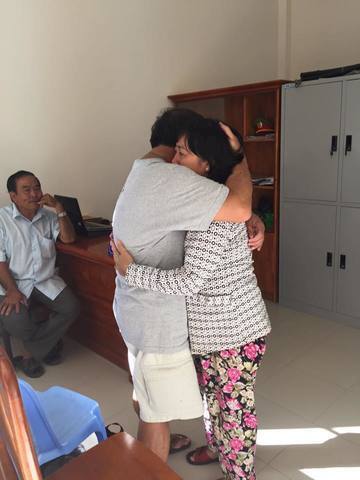
The connection was instant. Four months later, the remaining Skanchy children accompanied their parents to Vietnam to meet their aunts and uncles. A year later, Don’s family returned and some of his siblings joined them on an extended trip to North Vietnam to look for more relatives. They found the house where his mother was born, 3 aunts, and 40 cousins. It had been over 60 years since these Vietnamese relatives had seen or heard from their older sister, Don’s mother, and having forgotten what she looked like, they were overjoyed to see a picture of her and be reunited with her family.
Family Miracles
Many miracles and special witnesses came to the Skanchy family both before and after their reunion with their Vietnamese relatives.
“In 1980—this was before my [birth] father passed away (he died in 1981), he gathered the children together and there were six of the siblings. He told the children, ‘Don’t move away, don’t move away. Someday your older brother will come back to look for you, and you need to be here for him when he comes back.’ A few months later, my mother also passed away, and she told the children, ‘Don’t go away, don’t move away. He will come back, he will come back to look for you.’ And 35 years later I showed up.”

But that wasn’t the only miracle. Don explains that one-third of the Vietnamese population has the same last name, making family history work difficult. However, one of Don’s new uncles had decided to put together a family history, allowing Don to look back five generations and find the headstones of his grandparents.
This information proved vital for another tender mercy: temple work. “August of the year 2016, we were able to do 23 baptisms. Today we’ve done a total of 41 baptisms and [are] doing endowments for my parents and my grandparents and great-grandparents and all those who have gone before me. That was a sweet experience,” Don says. “Oh, what a joy it was for me to baptize my parents and grandparents on both sides of the family. It was a very special experience for me. And to have my children involved with the baptism as well—it was a very, very special experience.”
Perhaps the biggest tender mercy, however, happened in a small cemetery in North Vietnam. The Skanchy family had just found the graves of their grandparents and great-grandparents and the three children were standing in the cemetery with their father, crying. Don tells the rest of the story:
“Suddenly Tonya let out a little gasp. I looked up and said, ‘what’s wrong?’ She was holding my iPad. Now at that time, I had over 6,000 pictures on my iPad—pictures of family, of vacations and places we had gone to and grandchildren and all that stuff. And then it was the most incredible thing: a picture of my son Eric showed up on the iPad."
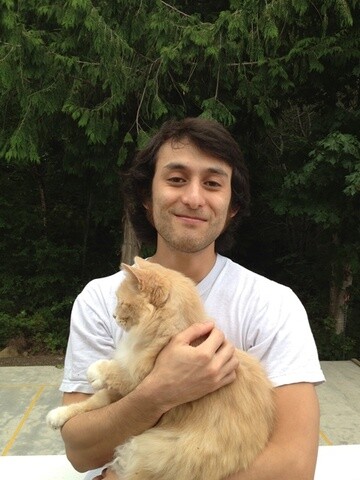
"I looked at Tonya and said, ‘were you looking at Eric’s picture?’ Tonya said ‘Dad, I didn’t even know that you had his picture on your iPad.’ There we were, standing in this circle and Eric’s picture on the iPad, and it was just like he was saying, ‘Guys, hey, I’m here! Glad to be here with you.’ So all of my children, including Eric (who has passed away), were there. We felt the Spirit so strongly, and we knew with all of our hearts that he was there with us, to enjoy, to celebrate the special occasion. . . .There were so many things that happened after [Eric] passed away to confirm that the gospel is absolutely indeed true. And when someone dies, they somehow go to another place and there they are helping to heal a heart and they help to reunite a family and also to let us know that they’re not really that far. And that’s what the gospel is about.”
Finally Reconciled
Though most of Don’s experiences being reunited with his family were positive, the reunion did bring up a few painful memories, particularly ones associated with his father.
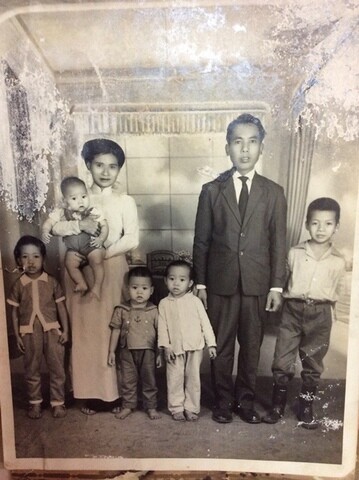
A small piece of paper his brother gave him finally started him on the path of reconciliation.
“In 1980 [my birth father] wrote a poem of four short verses . . . the title was, ‘The Father’s Tears,’” Don says. He then shares the poem, which he now has memorized.
“The father’s tears have all gone. I cried for the situation that we are separated. Now the father and son is no more. The little boy out there who needs help. Somebody please, help, help, Heaven help.”
Don’s first reaction to this tender poem was anger that his father never told him sooner that he loved him. But, Don shares, “Suddenly I thought of something. I just lost a son and I know how difficult it was for me to lose a son, and then I thought of my father who, too, lost a son and how difficult it must have been for him. Because of that, my heart was softened. Now, I don’t have any bad feelings for my father . . . I know that he did care for me, and he loved me.”
And that love will continue in the family today among the reunited siblings.
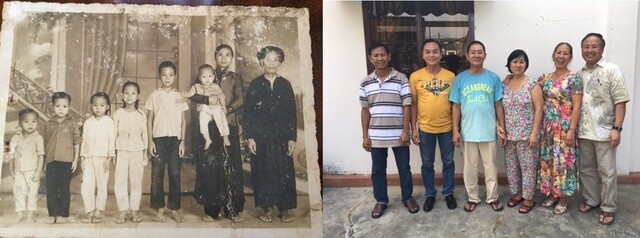
“When I first went over there [to Vietnam],” Don says, “I thought, if just by chance I suddenly walk into a situation where I would find my siblings, I would want to know what happened to my parents, and then we would say good bye and I would go my way and they would go their way and that would be it. . . . But the most amazing thing is that once I found my siblings, it just was like a magnet. We clung to each other, we cry, we laugh, we share memories, experiences. . . . Even though, the 50 years. I tell you, the relationship is so strong and I’m so grateful that I have six younger siblings that I care for and they love me.”
All images courtesy of Don and Kaylene Skanchy.


